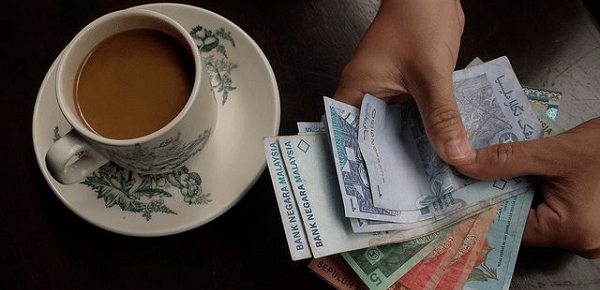Consumers Beware: Not All Businesses Can Charge GST
Table of Contents

Come April 1, many merchants and businesses that have registered with the Royal Malaysian Customs will be charging Goods and Services Tax (GST) for the various products and amenities they provide.
GST will be charged as long as these goods and services are not zero-rated or exempted, or the consumers have been granted relief from the tax.
Some unscrupulous business owners will no doubt seize the opportunity to increase prices. Some consumer groups claim that they have started doing so even before the implementation of the GST. This has created distrust and confusion among consumers, with many still unsure on how the new consumption tax works, and how it will affect them.
To avoid getting ripped off, consumers must ensure that they pay GST only to merchants or businesses that have been duly registered and authorised to charge the tax.
Don’t all businesses need to be registered under GST?
Actually, no. Only businesses with an annual sales turnover of RM500,000 and above are liable to be registered under GST.
The threshold is fixed at RM500,000 to ensure that smaller businesses do not have to bear the costs of registration (including start-up and compliance costs) under the GST. It is estimated that about 78% of total business establishments in Malaysia will not fall within the GST system.
However, businesses that have not reached the RM500,000 turnover threshold can apply to be registered under the GST. Once registered, the businesses must remain in the system for at least two years.
Which companies/businesses can charge GST?
Consumers can find out by accessing the Taxpayer Access Point (TAP) website by the Royal Malaysian Customs at: https://gst.customs.gov.my/TAP/

Click on “Lookup GST Status” on the right tab to search for a company’s GST-registration status simply by inputting its business name, business registration number or GST number.

If a company is registered for GST, there will be a match. This is proof that they are allowed to charge GST under the law. Make sure you fill in the criteria displayed on the screen using the same names and numbers according to what is printed on the invoice or receipt.
For example, Golden Arches Restaurants Sdn Bhd, master franchise holder of McDonald’s in Malaysia, is registered and therefore, authorised to charge GST.

However, McDonald’s Malaysia has announced that there will not be an increase in their prices following the implementation of the 6% GST. This is because the new 6% GST replaces the former 6% government service tax, which was already being paid by customers at all McDonald’s Malaysia restaurants.

No price hikes for McDonald’s menu line-up post-GST.
Also, once GST is implemented, all invoices by a GST-registered business will come with a 12-digit GST number in its tax invoice/receipt.
Consumers can check for the authenticity of the number and its registration using the same TAP website above. Make sure that the GST number and company or business name that appears on the screen matches what is printed on the invoice.
Finally, all price displays on any taxable supply of goods and services shall include GST, like the receipt below:

What if there’s no match?
If there is no match for the business or company in the system, it means they are not authorised to charge GST to its customers.
Consumers can take action on these businesses by lodging a report with the Ministry of Domestic Trade and Consumer Affairs so that action can be taken against them.
But hold your horses! Since GST is effective only from April 1 onwards, the Customs Department is still in the midst of processing the registration applications received.
Do businesses benefit from GST?
Business owners do stand to gain some advantages from GST. They include:
1) Lower business costs
Under the current Sales and Service Tax (SST) system, some businesses are required to pay multiple or cascading taxes for business inputs.
With GST, tax paid on business inputs (including labour, raw materials and incurred expenses) can be claimed as tax credit (which offsets tax liability), and thus reducing overall costs.
2) Increased global competitiveness
Local exporters stand to gain a competitive edge in the international market as GST will not be imposed on exported goods and services. This will elevate our export industry and contribute to the country’s growth.
3) Reduction of red tape
Under the SST, businesses need to apply for approval to get tax-free materials, as well as special exemption for capital goods (such as office buildings, equipment and machinery).
With GST, this system is eliminated and businesses can automatically offset the taxes they pay on inputs in their returns.
4) Greater transparency
With GST, taxes are levelled fairly among all businesses involved, which include the manufacturing, wholesaling, retail and service sectors.
5) Fairer pricing for consumers
The new GST system eliminates double taxation under SST. As such, consumers will pay fairer prices for many goods and services in the market, compared to SST. Also, consumers will know exactly whether the goods or services they consume are subject to GST and the amount they pay for.
With GST just around the corner, many Malaysian consumers may be feeling from the edge from all the debates surrounding the topic. While some will experience an initial shock or even a feeling of apprehension when the system comes into force, it is important to note that GST is not an “additional tax,” but simply as a replacement for an older consumption taxation system.





